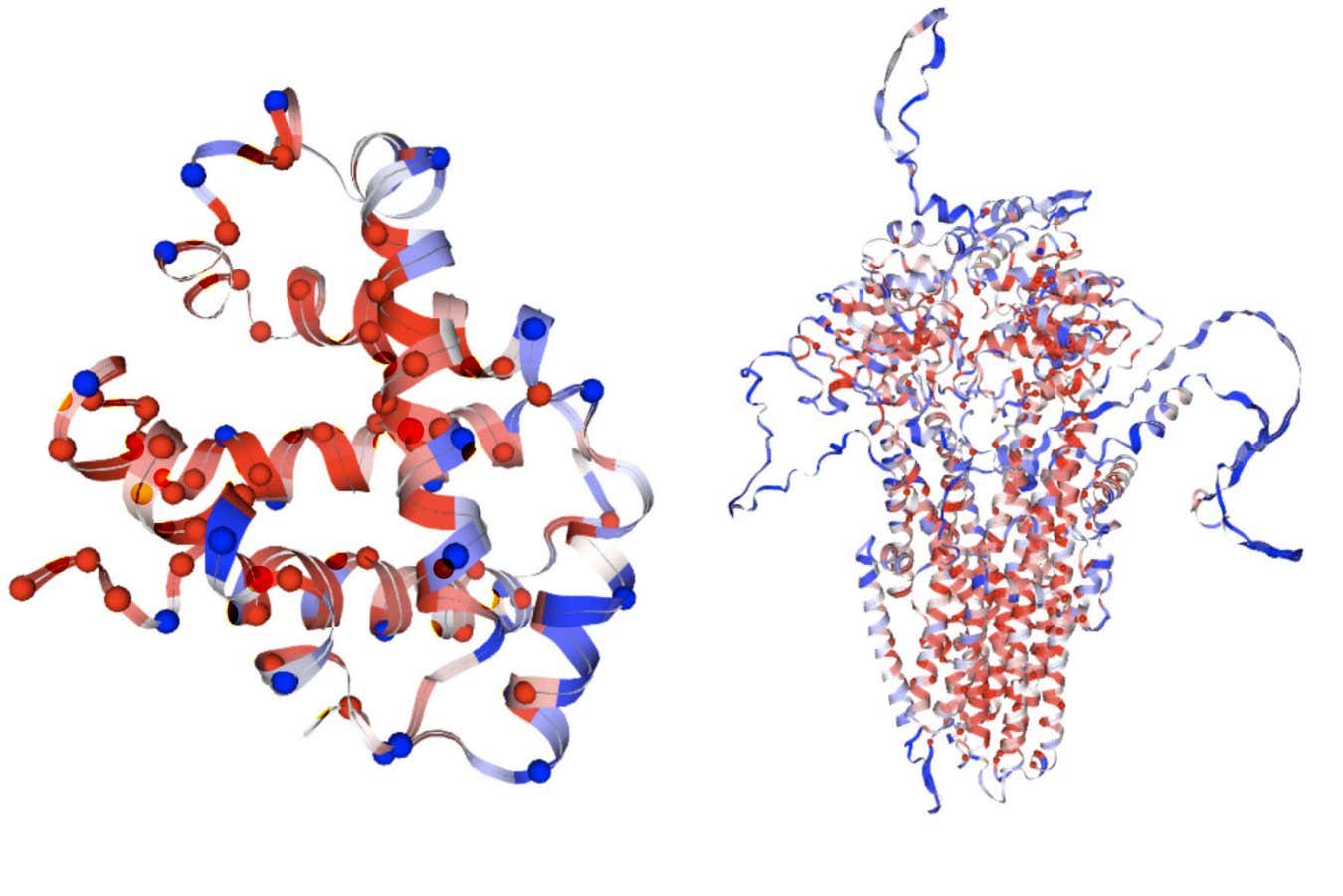By working out which small mutations will probably be damaging, Google DeepMind’s AlphaMissense system could help doctors identify the cause of genetic diseases
By Michael Le Page
19 September 2023
Google DeepMind’s AlphaMissense AI can predict whether mutations will affect how proteins such as haemoglobin subunit beta (left) or cystic fibrosis transmembrane conductance regulator (right) will function
Google DeepMind
Artificial intelligence firm Google DeepMind has adapted its AlphaFold system for predicting protein structure to assess whether a huge number of simple mutations are harmful.
The adapted system, called AlphaMissense, has done this for 71 million possible mutations of a kind called missense mutations in the 20,000 human proteins, and the results made freely available.
“We think this is very helpful for clinicians and human geneticists,” says Jun Cheng at Google DeepMind. “Hopefully, this can help them to pinpoint the cause of genetic disease.”
Advertisement
Almost everyone is born with between about 50 and 100 mutations not found in their parents, resulting in a huge amount of genetic variation between individuals. For doctors sequencing a person’s genome in an attempt to find the cause of a disease, this poses an enormous challenge, because there may be thousands of mutations that could be linked to that condition.
Read more:
Millions of coronavirus mutations offer a new insight into evolution
AlphaMissense has been developed to try to predict whether these genetic variants are harmless or might produce a protein linked to a disease.
